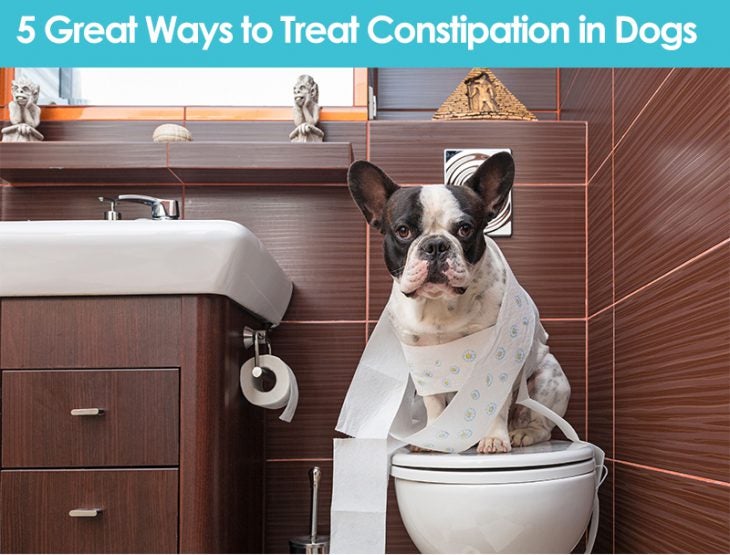Dogs, like humans, suffer from constipation. It is a common ailment and should not be cause for alarm unless it happens frequently.
Signs of constipation in dogs: If you have noticed that your dog has not been able to defecate in more than two days, or it strains or cries when trying to defecate, it most likely is suffering from constipation. If this is the case take your pooch to a veterinarian as soon as possible.
What causes constipation in dogs? Your dog may be suffering from constipation due to a great number of reasons. Here are the most common ones: not enough fiber in its diet, consuming non-food items such as bones, dirt, gravel, plants, or stones that get stuck in the intestinal tract, excessive self-grooming can cause large amounts of hair to collect in the stool, lack of exercise, enlarged prostate gland, matted hair around the anus from lack of grooming or from obesity, blocked or abscessed anal sacs, side effects of medication, dehydration due to an illness, or trauma to the pelvis.
What could happen if the constipation in my dog goes untreated? If left untreated, your dog will not be able to empty its colon on its own. This is typically referred to as obstipation which is when the colon is packed with a large amount of feces. This condition causes excessive straining with no results, loss of appetite, lethargy, and vomiting in some cases.
Five ways to treat constipation in dogs: Once the veterinarian determines what is causing constipation in your dog, he or she might prescribe one more of the following treatments:
- A diet high in fiber such as canned pumpkin, or bran cereal
- An increase in exercise helps increase the intestinal muscles ability to contract. Therefore, allowing the stool to move quicker through the intestinal tract
- Medication to increase the contractile strength of the large intestine
- Stool softeners or laxatives: need to be used sparingly as excessive could lead to soft or water stool and accidents in the home
- An enema: administered by a professional since most dogs do not take too kindly to this highly invasive treatment
In conclusion, constipation in dogs is a common occurrence. However, it should not be taken lightly. If your gets constipated frequently, take it to a veterinarian right away. Low-fiber diets, not enough exercise, swallowing non-foods such as gravel or stones are some of the causes of constipation in dogs. If left untreated, constipation can lead to obstipation which can cause vomiting, lethargy, excessive straining, or loss of appetite. The five most common ways to treat a dog with constipation are: increase the fiber in its diet, increase time spent exercising, give it medication to help build the contractile muscle in the large intestine, use stool softeners or laxatives, and/or administer an enema. The latter should be done a by professional due to its invasive nature.
Do you have a remedy for treating a dog with constipation?
If yes, let us know in the comments section.





